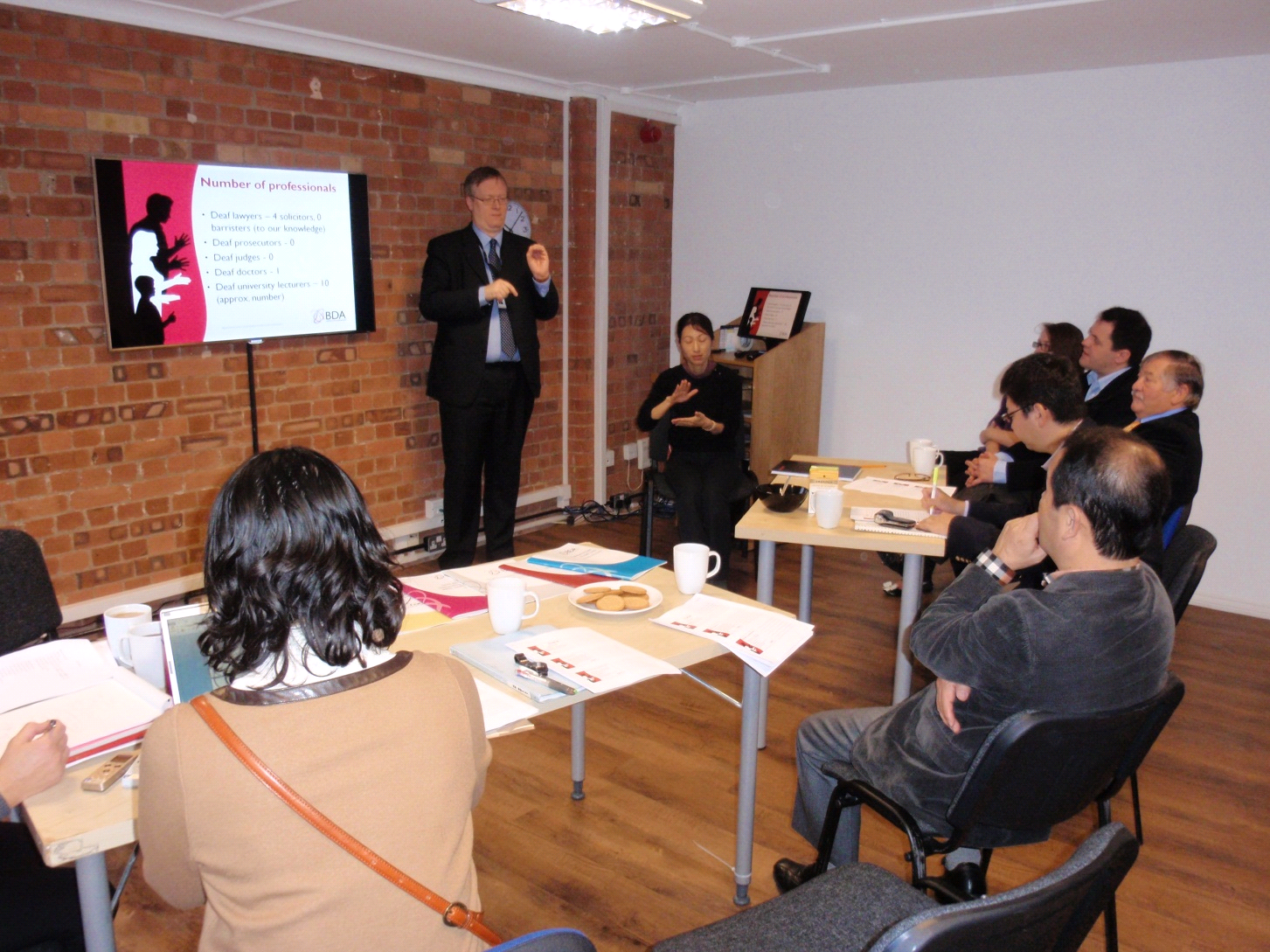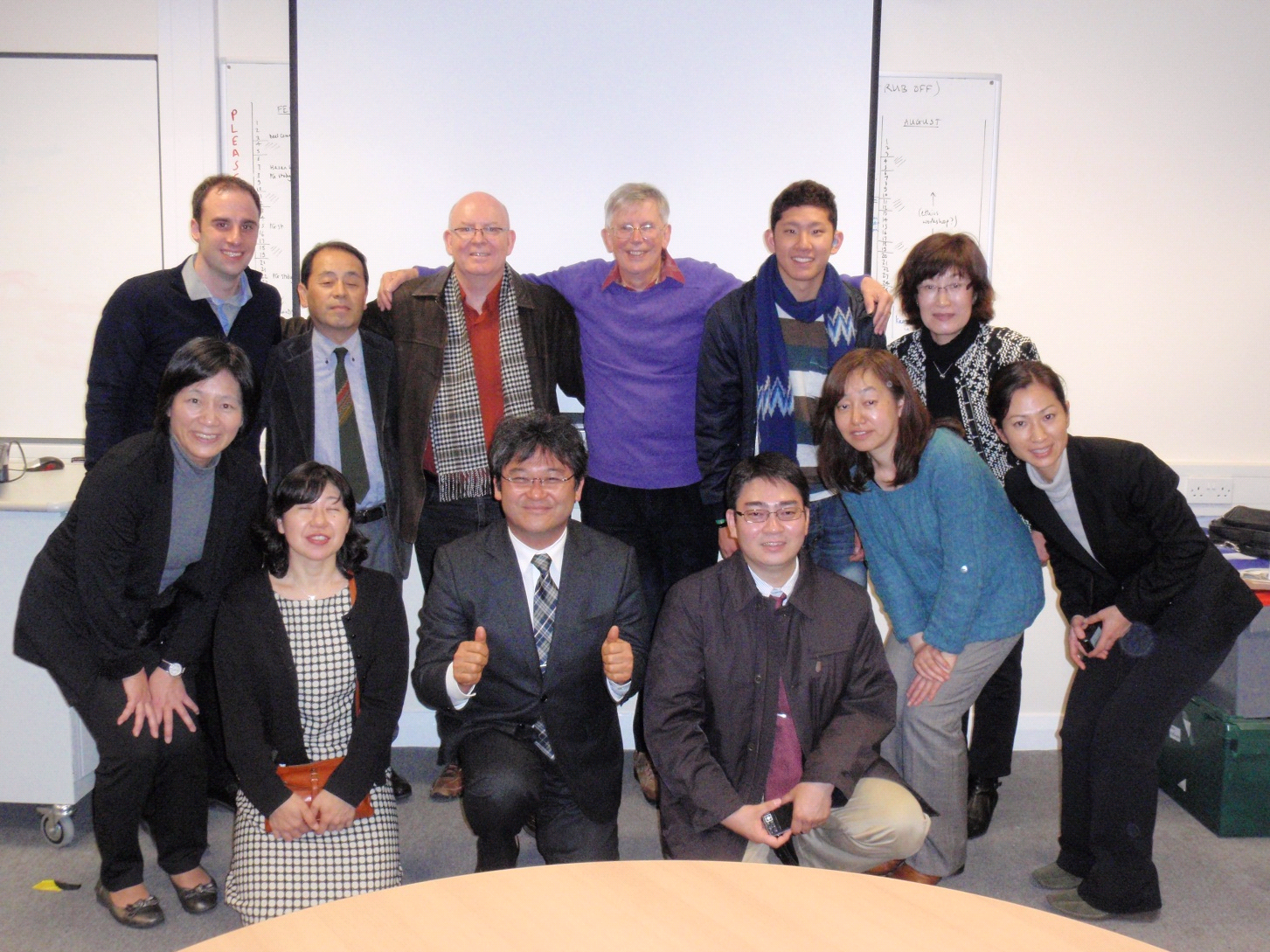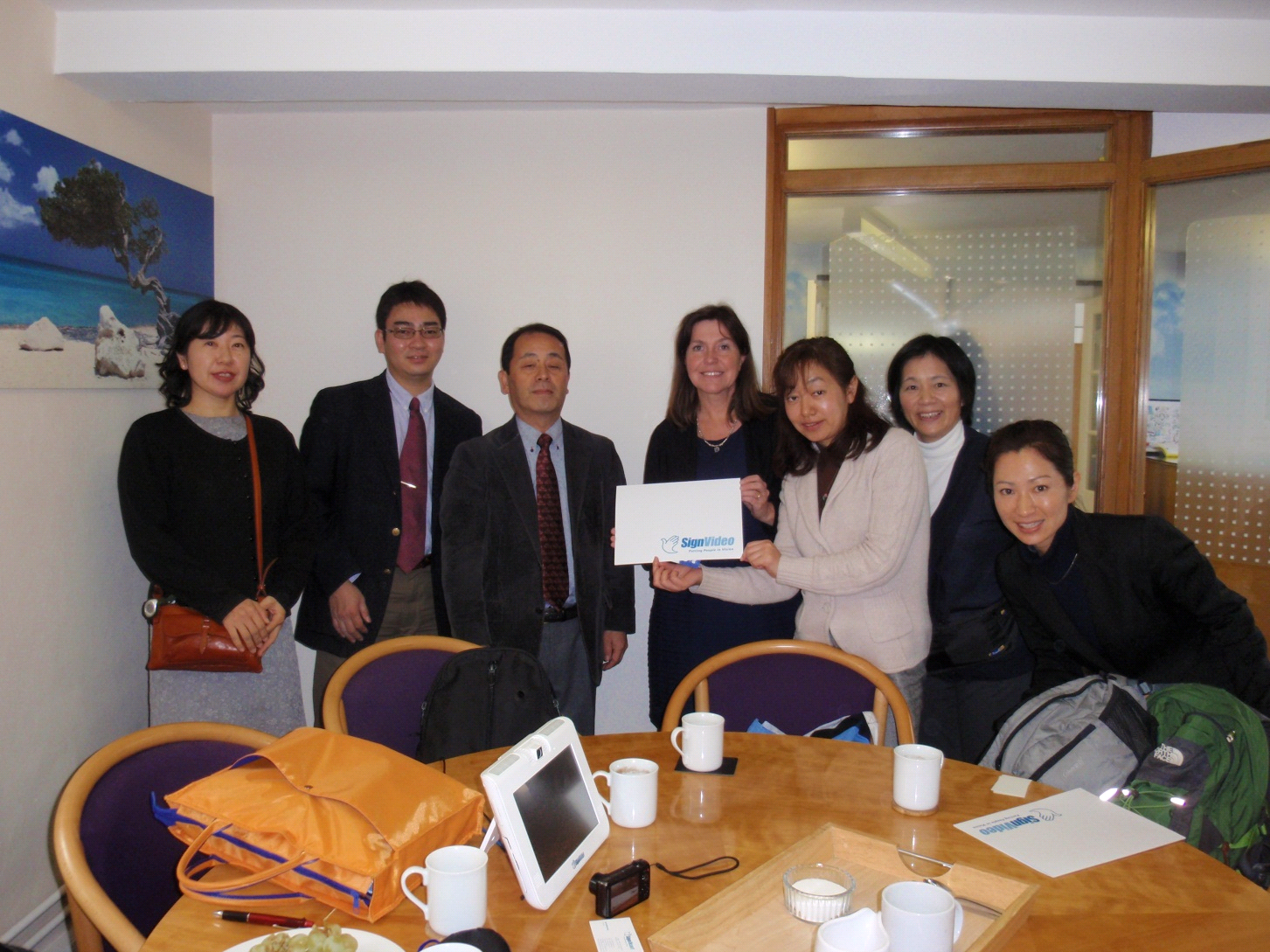
JFD President Fujisaburo Ishino
Japanese Federation of the Deaf (JFD) is an organisation with exclusively Deaf members. We have approximately 22,000 members. Our organisation was established in 1947 just after the end of World War II. We at the JFD have set several goals for Deaf participation in society and for increased Deaf independence. We have worked extensively with policy makers and are proud to say that we achieved in gaining driver’s licenses for Deaf people, established a sign language interpreting system, amongst other successes. In 2011, the “Basic Act for Persons with Disabilities”, was revised and in this Act, sign language was included as a language legally for the very first time in Japanese history. This was a great accomplishment.
In Japan, we are currently working towards a revision in the national laws for the ratification of the United Nations’ “Convention on the rights of persons with disabilities”. We are hoping that after the revisions, the environment surrounding people with disabilities will improve. The right to receive and transmit information, wherever, whenever and whoever is not fully understood in the Japanese society. The notion of the Deaf being able to freely choose the communication type or method by their own will is still not realized in the society. These are the basic rights of the Deaf, yet they are not fully embraced as yet in society. People do not realize the effect of this denial, and this is inhibiting social participation.
What is needed in Japan?
Within the UN “Convention on the rights of persons with disabilities” there is a notion of “accessibility”, yet in Japan this criterion is still not fully understood. We are still behind, especially in the understanding of information access and assurance of communication. An example is that in Japan television broadcasting with captioning starts from 7:00 to 24:00. Even during this time, there is no captioning for TV commercials. When it comes to interpreting, the government has recognised that at press conferences, sign language interpreting is necessary. Yet, the broadcasters refuse to show the interpreting on the television. The television stations lack the awareness and understanding that they have Deaf viewers who rely on such interpreting to be fully informed.
The issue of interpreting is wide. Within the context of employment, the onus is on the employer to pay for interpreters, which makes them extremely reluctant to use on a regular basis. Despite employees requesting interpreters for company meetings, many of these requests are denied. The role of the interpreter is also misunderstood, which leads employers to worry about the confidentiality risk of allowing an ‘outsider’ to be privy to company information.
What is the immediate challenge?

JFD Meets British Deaf Association
The JFD, on behalf of the Deaf community of Japan, are calling for the need of an “Information Access & Communication Act” (tentative name) to assure information access and/or communication for all persons with disabilities. In 2012, we were able to make a visit to the United Kingdom, from Monday 12th November 2012 to Sunday 18th November 2012. In the U.K. in 1995, the “Disability Discrimination Act” was enacted and in 2010 this was followed by the “Equality Act”, which prohibits discrimination based on disability, age, sex, marital status, race and religion. On our trip, we visited many disability related organisations, supporting organizations and public administration. We were able to learn about the system, policy and different kinds of support concerning the Deaf in the U.K. and meet many leading members.

JFD meets Deaf staff from University of Central Lancashire
We were most amazed at the provision of Access to Work (ATW). This provides benefits that suit each individual, to be used for support and services for persons with disabilities to allow them to work on a par with hearing colleagues. By using this system, Deaf people can gain benefits for sign language interpreting fees and other service related equipment. As mentioned above, in Japan there is limitation in the communication assurance in the work place. We can only rely on the understanding of the company/employers and the financial support of the company for Deaf communication support. In the U.K., the employers can use ATW for “reasonable accommodation”, without burden of the expenses. In Japan, we hope to work towards such system.

JFD Meets SignVideo one of our sponsors
We also learned from the activities in the U.K. relating to access to broadcasting. By deciding one goal – that of increased access for deaf and hard of hearing viewers – many organizations cooperated and asked for support from the public and councillors. This resulted in success and it spread to the public. We at the JFD hope to emulate this approach: that of gaining understanding from the public at large, cooperating with people from different fields and not trying to solve everything only through action by the disability related organizations. We would like to learn from the achievements and systems in the U.K. and work towards the enactment of the “Information Access & Communication Act”. We were honoured to visit the U.K. and we were able to bring back many ideas back to Japan.
Japanese Federation of the Deaf (JFD) is an organisation for Deaf people in Japan. They aim to improve life, communication and access for Deaf people throughout Japan. Established in 1947, they seek to enact the ‘Information Access & Communication Act’, to ensure that Deaf people and people with disabilities have full access to information and communication within society and at work. They visited the UK in November 2012 to find out more about how to ensure equal access for Deaf people. They hope to create a system that works towards the UK’s model of access for all.


Hello there, my name is karan live in kathmandu in nepal. I want go to japan job at stay. Ok u?
I’m Majid Heidari from Iran and have a mild disability from the hearing area. I have a bodybuilding experience in the field of , and I am in the early stages and have a master’s degree in mechanical engineering. I urge you to apply for Japanese Immigration from Japan as well as from your Sports Organization. I hope you agree with the request and give .Thank you very much